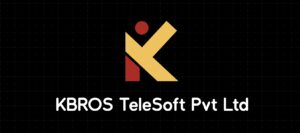India’s largest mobile operator Bharti Airtel has completed trials of all third generation services that it plans to introduce. The company is now awaiting the allotment of radio frequency (also called spectrum) from the government to launch 3G services in India. Bharti is also learnt to have issued a Request For Proposal (RFP) to Ericsson for 3G networks and equipment.
A RFP is an invitation for suppliers to submit a proposal on a specific product or service. “We have completed 3G pilots and test runs for all next generation services that we plan to roll out — these tests were carried on the limited indoor spectrum that was allotted to us,†Bharti Airtel president (mobile services) Sanjay Kapoor.
Other telecom majors such as BSNL, Vodafone-Essar, Reliance Communications and Tata Teleservices are also carrying out trial runs of 3G appellations and services.
According to company executives, the pilots included testing all high-speed internet applications, next generation gaming, video and wireless streaming. Bharti has also put processes in place for seamless migration of all value-added services to the 3G space from its current 2G networks.
A Bharti executive also added that they had successfully tried out IMS-based applications, a software platform in line with the latest 3G standards. This implies that content and application developers can use this platform to develop services for Bharti customers.
Mr Kapoor, however, refused to comment on whether Bharti had issued a Request For Proposal (RFP) to Ericsson for 3G equipment. “RFPs are issued all the time — this is an ongoing process,†he said. Last year, Bharti had awarded a $1 billion contract to Ericsson to set up telecom infrastructure in 15 of the 23 telecom circles (areas) in the country. Ericsson also manages the network for Bharti in these circles.
Currently, about 10% of Bharti’s revenues come from value-added services (VAS). This figure is likely to increase to about 15% following the introduction of a slew of new data services following the introduction of 3G services.
Operators are currently unable to launch 3G services as the radio frequency for these services are occupied by the country’s defence forces. This comes as the project to get the defence ministry to release 45 Mhz of spectrum (20 MHz for 2G and 25 MHz for 3G) is long overdue. As per the initial plan, the release was due in the second half of 2006, which was later extended to March 2007 and then to July 2007.
With the department of telecom (DoT) and the defence ministry locking horns over the release of spectrum, the launch of 3G services is set to be further delayed. Earlier this week, defence minister AK Antony called for more caution while releasing additional spectrum. “The (armed) services have there own concerns about security. We have to be more careful in the times of modern technology… We cannot compromise on national security,†he said.
